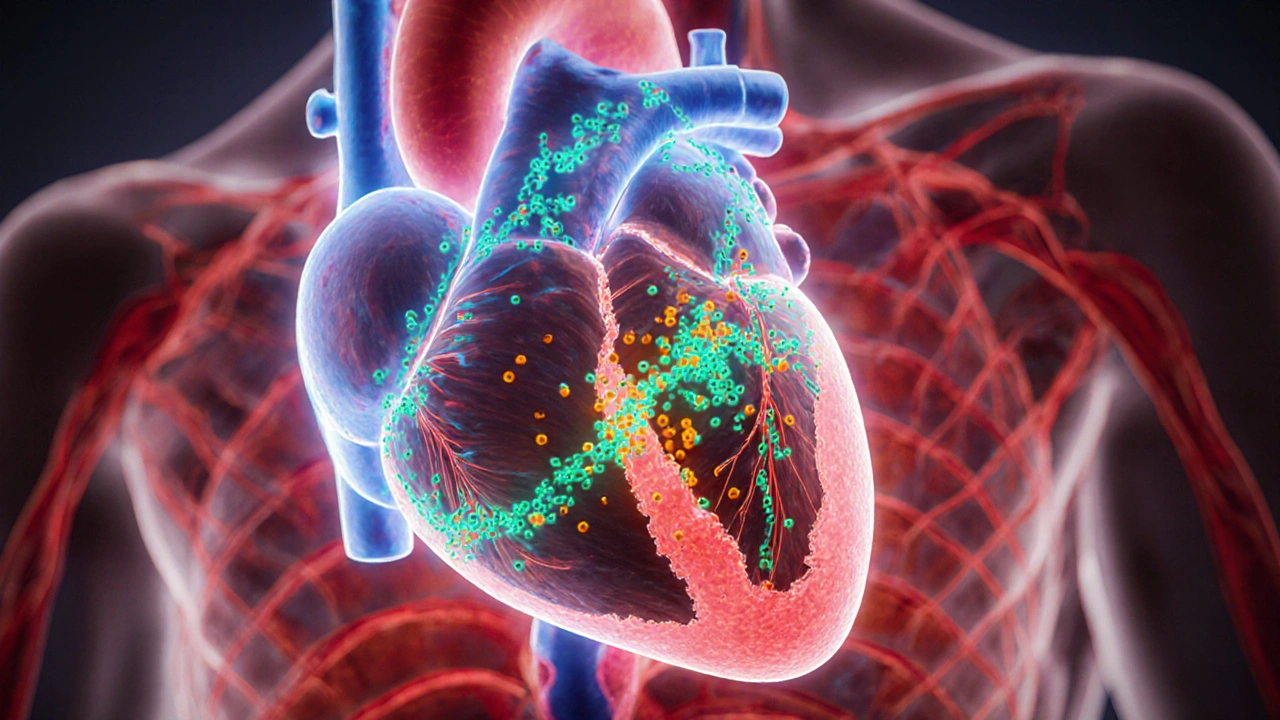Folate Deficiency
When dealing with folate deficiency, a shortage of the B‑vitamin needed for DNA synthesis and red blood cell formation. Also known as vitamin B9 deficiency, it can trigger a range of health problems. One of the most common outcomes is anemia, a condition where the blood lacks enough healthy red cells, which often shows up as fatigue, pale skin, or shortness of breath. folate deficiency also raises the risk of neural tube defects, serious birth abnormalities of the brain and spine in developing embryos. Understanding how these pieces fit together helps you spot signs early and act fast.
Why Folate Matters in Everyday Health
Folate isn’t just for pregnant people; it supports every cell that divides, from skin to immune cells. The body can’t store large amounts, so a steady intake from food or supplements is essential. Low folate levels reduce the production of methylene tetrahydrofolate, a molecule that donates carbon units for making nucleic acids. Without enough of this, DNA replication stalls, leading to the subject‑verb‑object pattern: folate deficiency causes impaired cell growth, which creates anemia. That same biochemical pathway is why a pregnant woman’s folate status directly influences fetal neural tube closure.
Dietary sources include leafy greens, legumes, citrus fruits, and fortified grains. However, many people struggle to hit the recommended 400 µg daily intake, especially those on restrictive diets or with gastrointestinal issues. In such cases, supplements, pharmaceutical-grade folic acid tablets or multivitamins become a reliable backup. Studies show that a daily 400‑800 µg supplement reduces the incidence of spina bifida by up to 70 % when started before conception.
Beyond pregnancy, folate plays a role in heart health. Homocysteine, an amino acid linked to cardiovascular disease, is broken down more efficiently when folate levels are adequate. Elevated homocysteine can damage blood vessels, so maintaining proper folate status is a preventive step for anyone concerned about heart health. This connection forms another semantic triple: adequate folate lowers homocysteine, which decreases cardiovascular risk.
When folate deficiency is suspected, a simple blood test measuring serum folate and red‑cell folate can confirm the diagnosis. Doctors often check for macrocytic anemia—red blood cells larger than normal—as a clue. If labs show low levels, treatment usually starts with oral folic acid 1 mg daily, adjusted based on severity. For severe cases or malabsorption, higher doses or intramuscular administration may be required.
Special populations need extra attention. People with alcoholism, celiac disease, or taking certain anticonvulsants (like phenytoin) can have impaired folate absorption. Likewise, older adults often have reduced dietary intake and may benefit from fortified foods. In these groups, clinicians may proactively prescribe folic acid to prevent deficiency‑related complications before they appear.
Interaction with medications matters, too. Some drugs, such as methotrexate used for cancer or autoimmune diseases, act as folate antagonists. In those scenarios, doctors typically add folic acid supplements to mitigate side effects like mouth sores or liver toxicity. This illustrates a practical link: drug therapy requires folate supplementation to maintain safety.
When planning a supplement regimen, it’s wise to consider the form of folate. Synthetic folic acid is well‑absorbed but must be converted to the active form 5‑MTHF, a step that can be slower in people with certain genetic variants (MTHFR). For those individuals, taking 5‑MTHF directly can bypass the conversion bottleneck and provide quicker benefits.
Finally, lifestyle habits can boost natural folate levels. Cooking methods matter—steaming vegetables preserves more folate than boiling, which can leach the vitamin into water. Pairing folate‑rich foods with vitamin C‑rich items (like bell peppers or oranges) enhances absorption, giving you a modest but meaningful edge.
Below you’ll find a curated list of articles that dive deeper into related topics—how to buy affordable medications safely, travel tips for specific health conditions, and detailed drug comparisons. These resources complement the folate deficiency guide by covering the broader context of medication management, supplement safety, and health‑focused travel planning.

How Folate Deficiency Impacts Cardiovascular Health: Causes, Risks, and Prevention
Learn how folate deficiency raises homocysteine, damages arteries, and increases heart disease risk, plus practical diet and supplement tips to protect your cardiovascular health.
More Detail